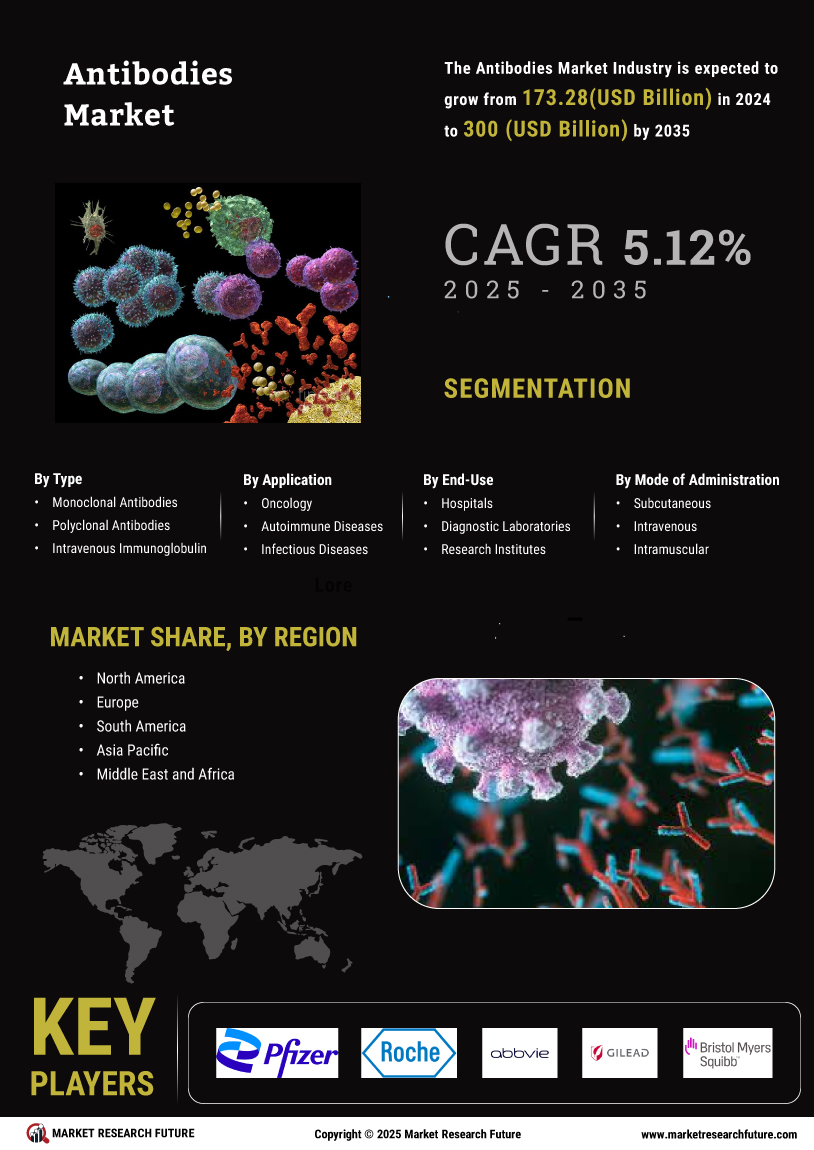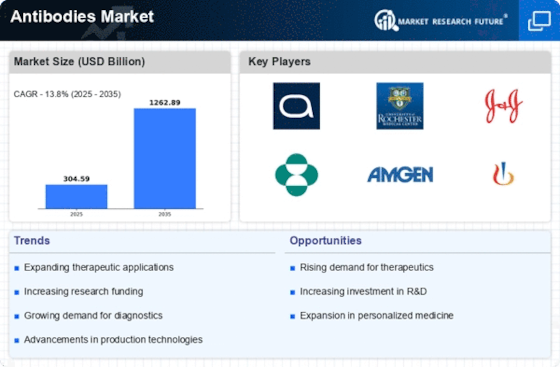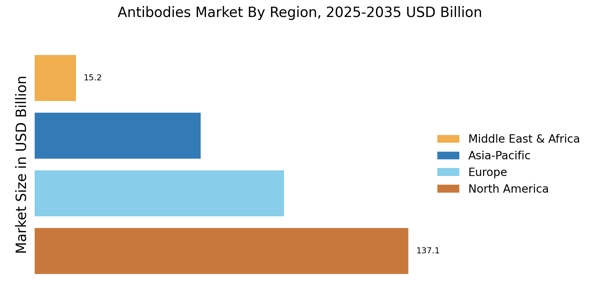Advancements in Biotechnology
Technological advancements in biotechnology are significantly influencing the Antibodies Market. Innovations in genetic engineering, recombinant DNA technology, and high-throughput screening methods have facilitated the development of more effective and specific antibodies. These advancements enable researchers to create antibodies that target specific antigens, enhancing therapeutic efficacy. The market is also benefiting from improved production processes, which reduce costs and increase the availability of antibody-based therapies. As a result, the Antibodies Market is experiencing a surge in the introduction of new products, including biosimilars and novel monoclonal antibodies. The integration of artificial intelligence and machine learning in drug discovery further accelerates the development of antibody therapies, suggesting a promising future for the industry as it adapts to these technological changes.
Regulatory Support for Biologics
Regulatory agencies are increasingly supportive of biologics, including antibodies, which is positively impacting the Antibodies Market. Streamlined approval processes and guidelines for the development of antibody-based therapies are encouraging companies to invest in this area. Regulatory bodies are recognizing the importance of these therapies in addressing various health conditions, leading to expedited review pathways for promising candidates. This supportive regulatory environment is likely to enhance the speed at which new antibody therapies reach the market, thereby driving growth in the Antibodies Market. Additionally, the establishment of clear guidelines for biosimilars is expected to foster competition and lower costs, making antibody therapies more accessible to patients. As regulatory frameworks evolve, the market is poised for continued expansion, with an increasing number of innovative products entering the therapeutic landscape.
Rising Demand for Targeted Therapies
The shift towards targeted therapies is a significant driver of the Antibodies Market. Healthcare providers and patients alike are increasingly favoring treatments that offer specificity and reduced side effects. Antibody-based therapies, particularly monoclonal antibodies, are at the forefront of this trend, as they are designed to target specific disease mechanisms. The demand for such therapies is reflected in market data, indicating a robust growth trajectory for the antibody segment. As more clinical evidence supports the efficacy of targeted therapies, the Antibodies Market is likely to witness an influx of new products aimed at various therapeutic areas. This growing preference for precision medicine aligns with broader trends in healthcare, where personalized treatment approaches are becoming the norm. Consequently, the market is expected to expand as stakeholders respond to this evolving demand.
Increasing Prevalence of Chronic Diseases
The rising incidence of chronic diseases such as cancer, diabetes, and autoimmune disorders is a primary driver of the Antibodies Market. As these conditions become more prevalent, the demand for effective therapeutic solutions, including monoclonal antibodies, is expected to surge. According to recent estimates, the global burden of chronic diseases is projected to increase, necessitating innovative treatment options. This trend is likely to propel investments in research and development, leading to the introduction of novel antibody-based therapies. Furthermore, the Antibodies Market is witnessing a shift towards targeted therapies, which are often more effective and have fewer side effects compared to traditional treatments. As healthcare providers seek to improve patient outcomes, the focus on antibody therapies is anticipated to intensify, thereby driving market growth.
Growing Investment in Research and Development
Investment in research and development (R&D) within the pharmaceutical and biotechnology sectors is a crucial driver of the Antibodies Market. Companies are increasingly allocating resources to discover and develop new antibody therapies, recognizing their potential to address unmet medical needs. In recent years, R&D spending has seen a notable increase, with many firms focusing on innovative approaches to antibody development. This trend is likely to continue, as the demand for personalized medicine and targeted therapies grows. The Antibodies Market stands to benefit from collaborations between academic institutions and industry players, fostering an environment conducive to innovation. As more funding is directed towards antibody research, the market is expected to expand, leading to the introduction of groundbreaking therapies that could transform treatment paradigms.

















